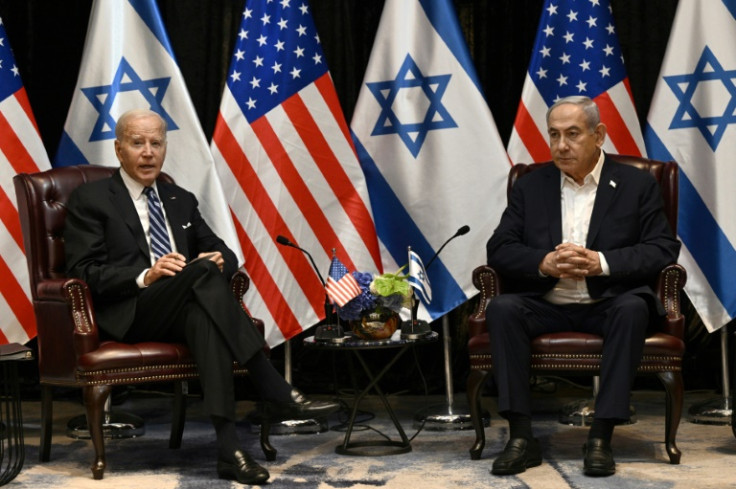Israel's Netanyahu Defies Biden's Warning On Rafah Invasion

Israeli Prime Minister Benjamin Netanyahu has declared his intention to proceed with an invasion of Rafah, located on the southern border of the Gaza Strip, despite strong opposition from U.S. President Joe Biden and several international community.
"We'll go there. We're not going to leave. You know, I have a red line. You know what the red line is, that October 7 doesn't happen again. Never happens again," said Netanyahu in an interview with Politico.
Biden has labeled such an offensive as a "red line," expressing concerns over potential civilian casualties, with the city now serving as a refuge for nearly half of Gaza's 2.3 million population.
Amid rising pressure from the U.S., Netanyahu claimed to have tacit support from undisclosed Arab leaders for the ongoing onslaught against Hamas, asserting that they recognize Hamas's affiliation with the Iranian terror axis.
International pressure is mounting on Israel to agree to a ceasefire, as relief organizations warn of a potential humanitarian catastrophe if Rafah is attacked. Germany's Foreign Minister Annalena Baerbock called it a "humanitarian catastrophe," and the European Union has opened a sea corridor from Cyprus to deliver aid due to the imminent famine.
In the interview with Politico, Netanyahu predicted that the conflict could conclude within as little as a month, asserting that Israeli forces have already destroyed three-quarters of Hamas's fighting terrorism battalions. However, casualty figures remain disputed, with the Hamas-controlled Gazan health ministry claiming civilian deaths exceeding 30,000.
Netanyahu also rejected the idea of a two-state solution, reinforcing his position that the majority of Israelis do not want a Palestinian state. He directly addressed Biden's criticism that the Israel PM is "hurting Israel more than helping Israel," by stating that the Israeli people support his stance against a Palestinian state and the recognition of a Jewish state by Palestinians.
Despite the strained relationship with Biden, Netanyahu was cautious in his criticism and refrained from endorsing any specific U.S. political figure. The Israeli leader faces domestic challenges in maintaining public support, while navigating the complex dynamics of the conflict and addressing the security concerns of his own electorate.
On the prospect of expanding the campaign to combat Hezbollah in southern Lebanon, Netanyahu left open the possibility of military operations to ensure the return of people who have left their homes in fear of cross-border attacks by the Shi'ite militia group. He emphasized the commitment to restore security through diplomatic means if possible but did not rule out military actions if necessary.
© Copyright IBTimes 2025. All rights reserved.






















